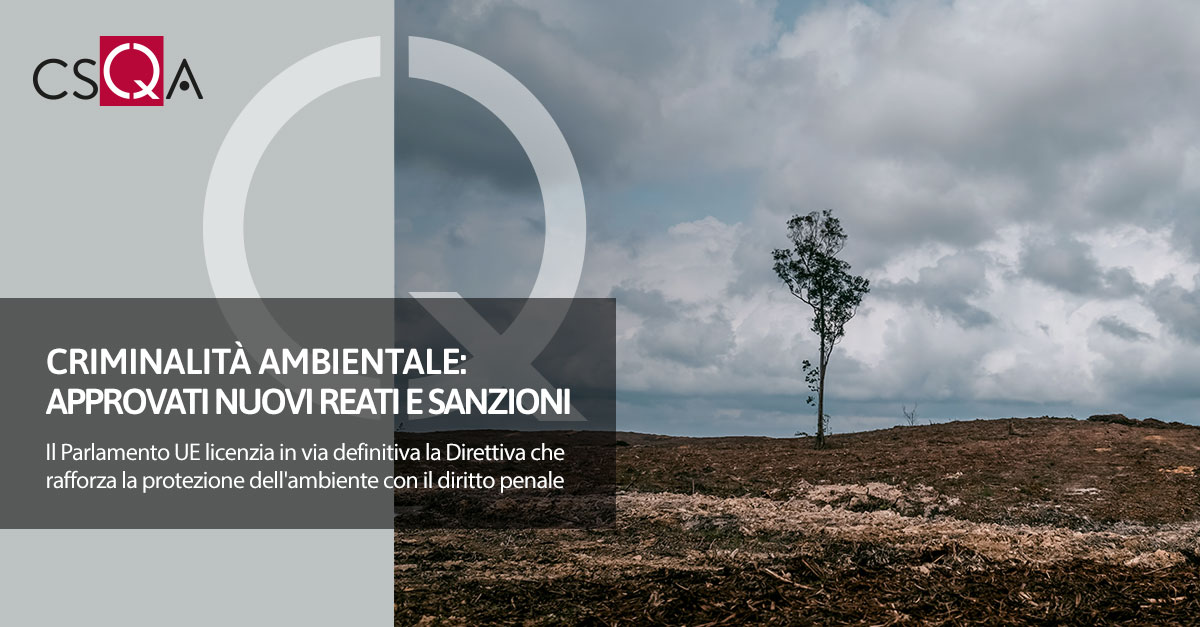
On 27 February 2024, the European Parliament definitively approved new measures and sanctions to combat environmental crime.
The new crimes include:
-
the illegal trade in timber,
-
the depletion of water resources,
-
serious breaches of EU chemicals legislation,
-
pollution caused by ships.
The deputies also wanted to include in the text the so-called "qualified crimes", i.e. those that lead to the destruction of an ecosystem and are therefore comparable to ecocide (for example large-scale forest fires or widespread air pollution, water and soil).
Fines and prison sentences
Environmental crimes committed by individuals and company representatives will be punishable by imprisonment , depending on the duration, severity or reversibility of the damage.
For so-called qualified crimes, the maximum is 8 years of imprisonment, for those causing the death of a person 10 years and for all others 5 years.
All violators will be required to compensate for the damage caused and restore the damaged environment , as well as possible financial penalties.
For businesses, the amount will depend on the nature of the crime: it could be equal to 3 or 5% of the annual worldwide turnover or, alternatively, 24 or 40 million EUR. Member States will be able to decide whether to prosecute crimes committed outside their territory.
Member States: training and data collection
MEPs successfully insisted during the negotiations on the introduction of support and assistance in the context of criminal proceedings for whistleblowers who report environmental crimes .
Furthermore, they introduced an obligation for member states to organize specialized training courses for law enforcement officers, judges and prosecutors , draw up national strategies and organize awareness campaigns against environmental crime.
Data on environmental crimes collected by EU governments should also enable them to better address the issue and help the Commission to regularly update the list.
Following the vote in plenary, the rapporteur for the European Parliament Antonius Manders (EPP, NL) said: "The time has come for the fight against cross-border crime to take on a European dimension, with harmonized and dissuasive sanctions that prevent new environmental crimes.
With this agreement, the polluter pays. But not only that: it's also a huge step forward in the right direction. In fact, any company manager responsible for causing pollution can be held accountable for his actions, just like the company.
With the introduction of the duty of care , there will be no way to hide behind permits or legislative expedients."
Next steps
The directive will enter into force on the twentieth day following its publication in the Official Journal of the EU. Member States will then have two years to transpose the rules into national law. (Source: https:// www.europarl.europa.eu/ )